27 Jan 2020
I’m happy to announce that our paper What Did Your Adversary Believe? Optimal Filtering
and Smoothing in Counter-Adversarial Autonomous
Systems has been accepted for presentation in
a lecture session at the 45th International Conference on Acoustics, Speech, and Signal
Processing (ICASSP). This year, the conference will be held
4-8 May, in Barcelona, Spain.
The post below contains an outline of
the problem we consider in the paper.
The work has been developed together with Inês
Lourenço, Vikram
Krishnamurthy, Cristian
Rojas and Bo
Wahlberg. We are very excited about this line of research
and are currently working on a number of extensions – stay tuned (and if you have any
comments, let us know)!
18 Oct 2019
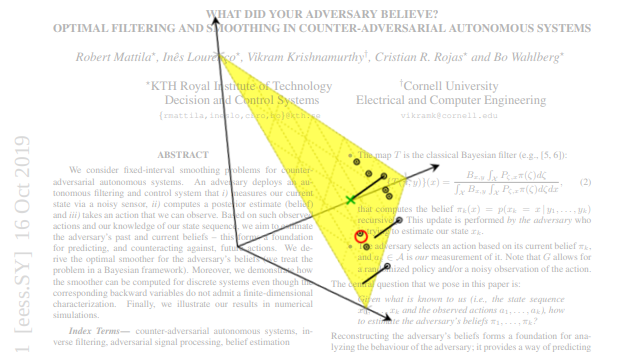
A preprint of our latest work What Did Your Adversary Believe? Optimal Filtering and
Smoothing in Counter-Adversarial Autonomous Systems
is now available on arXiv.
An adversary deploys an autonomous filtering and control system that:
- measures our current state via a noisy
sensor,
- computes a posterior
estimate (belief) and
- takes an
action that we can observe.
Based on such observed actions and our knowledge of our state sequence, we aim to
estimate the adversary’s past and current beliefs – this forms a foundation for
predicting, and counteracting against, future actions.
Have a look, and feel free to send me any comments you may have by email!
27 Sep 2019

This week, I attended the annual workshop of the European Research Network on System
Identification (ERNSI) in Maastricht, the Netherlands – very
interesting presentations and discussions! Me and Inês
Lourenço presented a poster related to our recent
paper on estimating private beliefs from
observed decisions.
26 Aug 2019

I’m currently visiting Prof. Vikram Krishnamurthy at
Cornell University in Ithaca, New York. The purpose of the
visit is to continue our line of research on inverse filtering problems that was
initiated with our NIPS 2017
paper and
that has continued in the papers [1,
2].
In these problems, the standard filtering
problem
Given observations from a noisy sensor along with a system model, compute estimates of the system’s state.
is flipped to
Given estimates (or actions based on these) of the state, determine how accurate the
sensors and system model are.
Why are such questions of importance? Inverse filtering problems are partly motivated by
the design of counter-autonomous
systems: given measurements
of the actions of a sophisticated autonomous adversary, how can our counter-autonomous
system estimate the underlying belief of the adversary, predict future actions and,
therefore, guard against these actions? Answers to these questions have potential
applications in a vast range of fields: (cyber-)security, finance, social networks, to name
a few – for more, see this recent paper that
discusses a number of motivational real-world examples and proposes a Bayesian framework
to inverse filtering.
05 Aug 2019
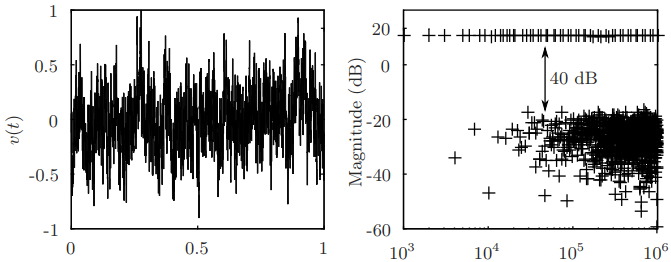
Our paper A Framework for High-Resolution Frequency Response Measurement and Parameter
Estimation in Microscale Impedance
Applications has
been accepted for publication in the
Measurement journal. The work has
been developed in collaboration with Roberto Ramírez-Chavarría and Matias Müller Riquelme.
In the paper, we propose a framework for spectral measurement and parameter estimation
applied to electrical impedance spectroscopy
(EIS) – an important tool for
characterizing the electrical behavior of matter. The results have potential applications
in biosensor systems (e.g., to measure bacterial concentration and to
detect dangerous pathogens) as well as human health
monitoring.
19 Jul 2019
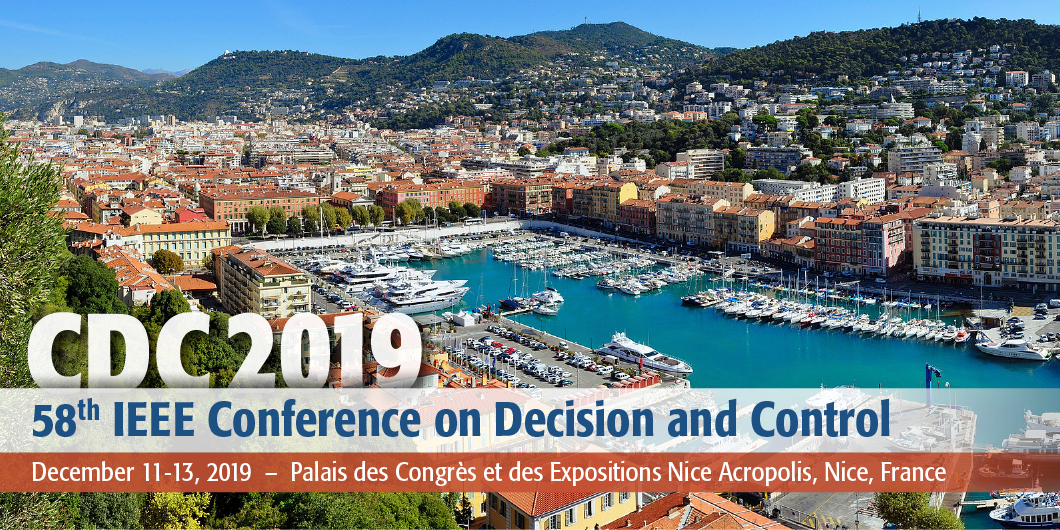
I’m glad to announce that our L-CSS paper Estimating Private Beliefs of Bayesian Agents
Based on Observed Decisions has also been
accepted for presentation at the 58th IEEE Conference on Decision and
Control (CDC). The conference will this year be held 11-13
December in Nice, France.
In the paper, we consider sequential stochastic decision problems in which, at each time
instant, an agent optimizes its local utility by
solving a stochastic program and,
subsequently, announces its decision to the world. Given this action, we study the problem
of estimating the agent’s private belief – that is, its posterior distribution over the
set of states of nature based on its private observations.
In other words: how can one estimate how agents perceive the world based on
their decisions and actions? This is a natural continuation of our previous works on
inverse filtering
[1,
2].
03 Apr 2019
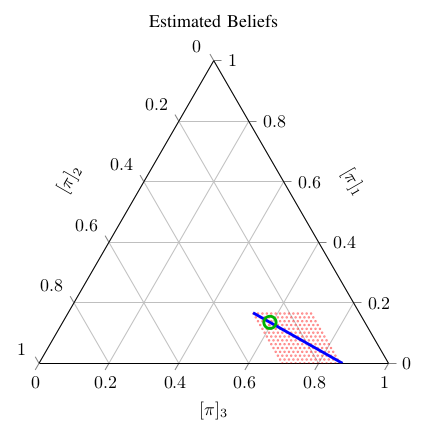
I am happy to announce that our paper Estimating Private Beliefs of Bayesian Agents Based
on Observed Decisions has been accepted for publication in the IEEE Control Systems
Letters (L-CSS). The work has been
developed in collaboration with Inês Lourenço.
In this paper, we investigate how one can estimate how agents perceive the world based on
their decisions and actions. This is a natural continuation of our previous works on
inverse filtering
[1,
2]. We believe that our results have
applications in, for example, social
learning.
02 Feb 2019
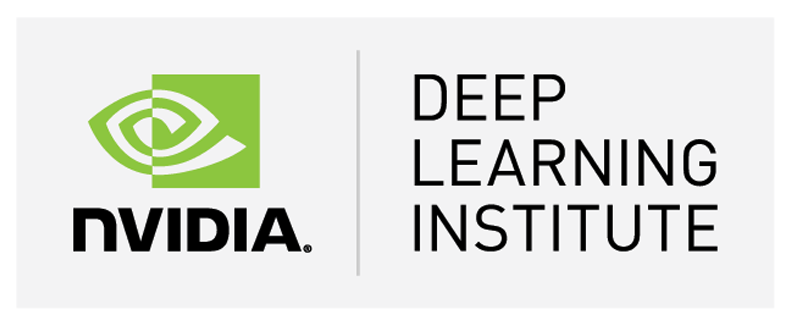
I completed
the course Fundamentals of Deep Learning for Computer
Vision by the NVIDIA
Deep Learning Institute. Very
interesting to get some hands-on experience with these exciting new techniques. I’m
looking forward to applying the concepts and learning more!
24 Jan 2019
The Department of Automatic Control is now the Division of Decision and Control
Systems (DCS):
The Division of Decision and Control Systems conducts research, education and
industry/society interplay within modeling, identification, control, learning and
optimization of dynamical systems.
More information is available here.
05 Dec 2018

The Department of Automatic
Control and Prof.
Alexandre Proutiere (who I’m teaching EL2805
Reinforcement Learning together with)
are currently featured in the KTH
news:
Today marks the start of Neural Information Processing Systems
(NeurIPS), the world’s largest and most prestigious conference in
Artificial Intelligence (AI) and Machine Learning (ML), an arena to which merely the best
are invited to present their research. […]
The Department of Automatic Control has published papers at NeurIPS consistently for six
years, an achievement that is unique in Sweden. KTH in general did well, setting a record
with five accepted papers. Three of those papers come from the Department of Automatic
Control.
Last year, our department had two papers:
mine and
Stefan Magureanu’s
paper.
This is a personal web page. Opinions expressed are solely my own and do not express the views or opinions of my employer.








